Where does enjoying beauty become objectifying?
What does it mean to objectify a woman? A man? Does anime do it?
What does it mean to objectify someone?

- The person is treated as a tool for the objectifer’s purposes. Shinji’s father uses Shinji to meet the goals of NERV.
- The person is treated as if they can’t direct themselves. Again, Shinji is a good example. Chii from Chobits is another.
- The person lacks agency. That is, lacks the ability to act on their own. Shinji is, again, a good example.
- The person is seen as interchangeable with other objects. Shinji is replaced by an AI unit in Neon Genesis Evangelion.
- The person is seen as lacking in boundaries and integrity.
- The person is owned. They can be bought and sold. Nemu Kurotsuchi from Bleach falls into this category. She is treated as property by Captain Kurotsuchi. Transaction based relationships show this as well.
- The person’s experiences and feelings do not need to be considered. Again, Shinji is disregarded by this father in most accounts.
- The person is reduced to his/her body or body parts. This is what we think of the most when women are objectified.
- The person is treated based on their appearance. Shinji to some extent. Asaka, in particular, comes to mind from the Eva series.
- The person is treated as if they are silent, regardless of their opinion.
These 10 ideas are all aspects of objectifying someone. They don’t all need to be present. Shinji isn’t reduced to his body parts, but he shows how most of these ideas go into treating someone as an object. As you can see, objectification goes beyond the sexual components we most often think of as objectifying. Objectification is a disregard for a person’s identity. It is a way of thinking that relegates a person to nothing more than a commodity.
Anime Objectifies Women…and Men
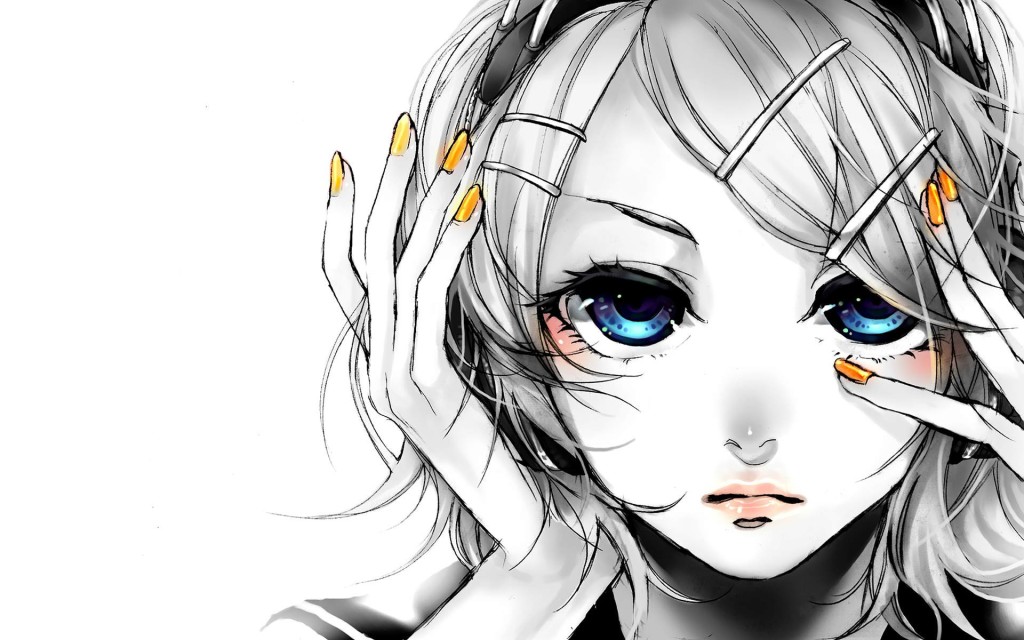 The idea of objectification usually doesn’t extend to fictional characters. Fictional characters are created to serve a particular story or purpose. They are not fully developed people but rather illusions of people (Swain, 1965). Anime characters are also designed to fill certain story needs. They are not fully real players in our world. This does not lessen their impact on us by any means. These characters are designed to resonate and jump off the page as if they were real.
The idea of objectification usually doesn’t extend to fictional characters. Fictional characters are created to serve a particular story or purpose. They are not fully developed people but rather illusions of people (Swain, 1965). Anime characters are also designed to fill certain story needs. They are not fully real players in our world. This does not lessen their impact on us by any means. These characters are designed to resonate and jump off the page as if they were real.
Fictional characters are objects by definition. They lack ‘humanity.’ That is, they are not human like you and me. (Am I human? Are you human?). Fictional characters fit all or most of our criteria because, like any idea, they are objects.
- Fictional characters serve the author’s and reader’s ends.
- Fictional characters cannot direct themselves. They are bound to the story’s (or reader’s) plot.
- Fictional characters cannot act on their own. They must have someone write their story, animate, or draw them.
- Fictional characters are interchangeable to a certain degree. The storyline is what defines them.
- Fictional character boundaries are only what we imagine them to be. Think of all the hentai fan fiction out there that goes beyond the author’s original ideas for the characters.
- Fictional characters are owned and are literally sold by authors and companies.
- Their thoughts and experiences can be disregarded. OVAs do this all the time.
- A character is defined by how they look. Ichigo has a certain look. Give him black hair, and he will look like Kaien Shiba.
- Fictional characters are treated by their appearance. Fans like certain character designs more than others.
- Fictional characters are silent except for the words we give them.
So, anime objectifies both men and women characters. Like all fiction.
Okay, some of you are rolling your eyes or even yelling at the screen. I missed the point of what it means to objectify someone. The point I am trying to make is how fictional characters are different from real people when it comes to objectification.
Objectification is not always a bad thing. I am getting there. Hang with me a little bit longer.
Objectification deals with the treatment of people . Fictional characters fall into the objects area and so are objectified. That doesn’t mean you (or me) treat these characters as objects. Just because High School of the Dead has jiggling boobs and makes its female characters boob totems does not mean every viewer objectifies that character as the anime tries to force.
So instead of asking “does anime objectify women” ask yourself: “do I objectify women?”
The point of illustrating fictional characters as objects is to point out how you treat your favorite fictional character in your mind. Whenever I watched High School of the Dead, Freezing, or other fan service laced anime, I do not regard the female character in the way the anime tries to portray. I am not titillated by animated breasts. Instead, I ponder why the author viewed such as necessary. Do the fans actually want this? Does this contribute, at all, to the feelings I have toward the character? I may, perhaps, feel sorrow for the character. I am a bit prudish, so most of the time I feel irritation toward the writers.
What mindset does objectification cultivate?
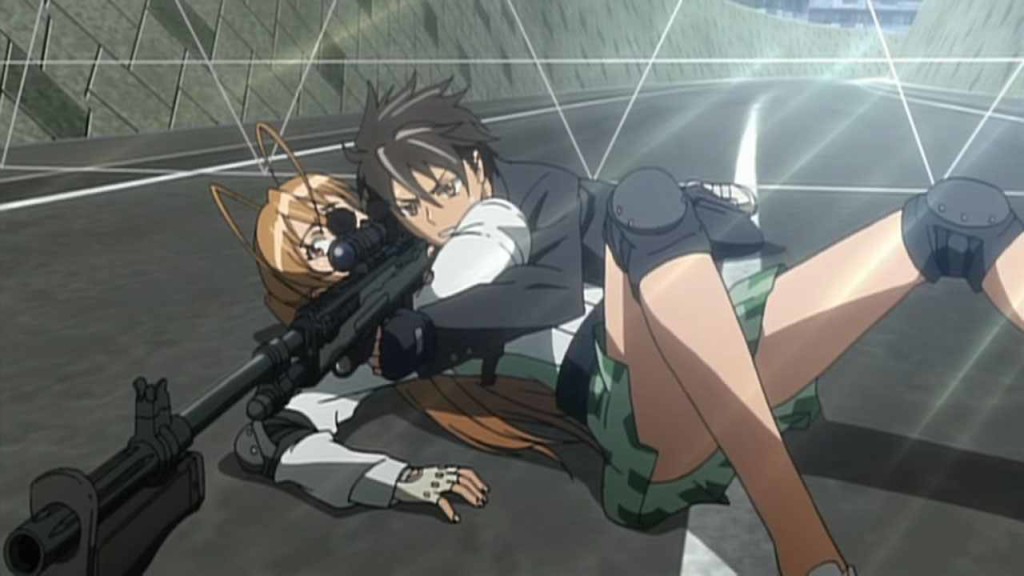 The issue is mindset. The objectification of fictional characters can leech into reality if you embrace such thinking. Or fictional objectification can strengthen compassion toward that character. Fiction reveals to us our deepest thoughts. If you are turned on by some fictional women being exposed or put in compromising situations, these types of thoughts will interject themselves into reality. Fictional objectification can show us aspects of ourselves that we may not see otherwise. It is a safe place to realize our proclivities. Realization is the first step to changing behavior we dislike. So in this regard, anime’s objectification of men and women can be helpful.
The issue is mindset. The objectification of fictional characters can leech into reality if you embrace such thinking. Or fictional objectification can strengthen compassion toward that character. Fiction reveals to us our deepest thoughts. If you are turned on by some fictional women being exposed or put in compromising situations, these types of thoughts will interject themselves into reality. Fictional objectification can show us aspects of ourselves that we may not see otherwise. It is a safe place to realize our proclivities. Realization is the first step to changing behavior we dislike. So in this regard, anime’s objectification of men and women can be helpful.
I generally avoid anime that has girls’ clothes shredding. I specialized in character design in my undergrad animation degree, so I drew a lot of female anatomy. Nudity does not bother me. Circumstances of nudity does. Clothes get ripped in battle, but efforts to objectify a strong female warrior shows more about the viewer’s and writer’s mentality than the character’s personality. Namely, this objectification is aimed at reducing the threatening feelings a strong female character can invoke in a male audience. Many men are troubled by women who are too strong. These women cannot be possessed, bossed, or otherwise need a male. So, in order to make them more acceptable, these strong female characters are objectified through boob shots, up skirts, and similar nonsense. Are you a fan that feels threatened by strong female characters?
By the way, if you want a good anime with a strong female lead that avoids objectification, check out Moribito.
Objectification is inevitable.
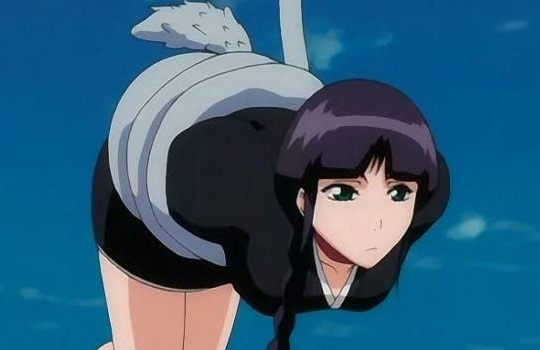
Even using objectification as a call to mindfulness is still using that character or person as a means to an end. The trick is a matter of degree. Fictional characters are personas that appear to be real, and may well become real in our minds. They exist to help us discover ourselves: a means to an end. However, the end and the means are both noble. Asking a friend for help and seeing that friend as a means of help is not wrong. It is a matter of degree.
What makes objectification wrong is the absence of humanity. Fictional characters are ideas that are inherently human. Even the typical objectification of women, boob jiggles and the like, are common human behavior. In the right circumstances, a guy watching breast bounce may well be a good thing for both the guy and girl. He likes what he sees; she knows he respects her enough to feel happy about how much she pleases him. On the reverse, she likes his chest, and he likes how she likes his chest. It is okay in these types of situations. Both people respect each other and do not objectify outside of limited situations. The problem is when objectification is one sided and demeaning. It is a problem when objectification becomes a default view. Even the idea of ownership can be a point of pride. In the past (such as the Roman Empire) some slaves were proud to belong to certain households.
So, do you objectify women? Men?
I do. At the right circumstances and the wrong circumstances.
Anime, like any fiction, depends on the viewer. Shinji’s objectification by his father leads to a character many can identify with. High School of the Dead‘s boob hijinks can act as a warning about our mentality toward women or reinforce the negative feedback loop. Ghost in the Shell objectifies the Major in order to emphasize her disconnect between her artificial bodies and her sense of self.
It is matter of perspective. As long as people are not treated only as objects, objectification is not necessarily wrong (Papadaki, 2014). Enjoying beauty is not the same as objectifying as long as the person’s (or character’s) humanity remains in the viewer’s mind.
References
Papadaki, E. (2014). Feminist Perspectives on Objectification. Stanford Encyclopedia of Philosophy. http://plato.stanford.edu/entries/feminism-objectification/#PosPosObj.
Swain, D. (1965). Techniques of the Selling Writer. University of Oklahoma Press.
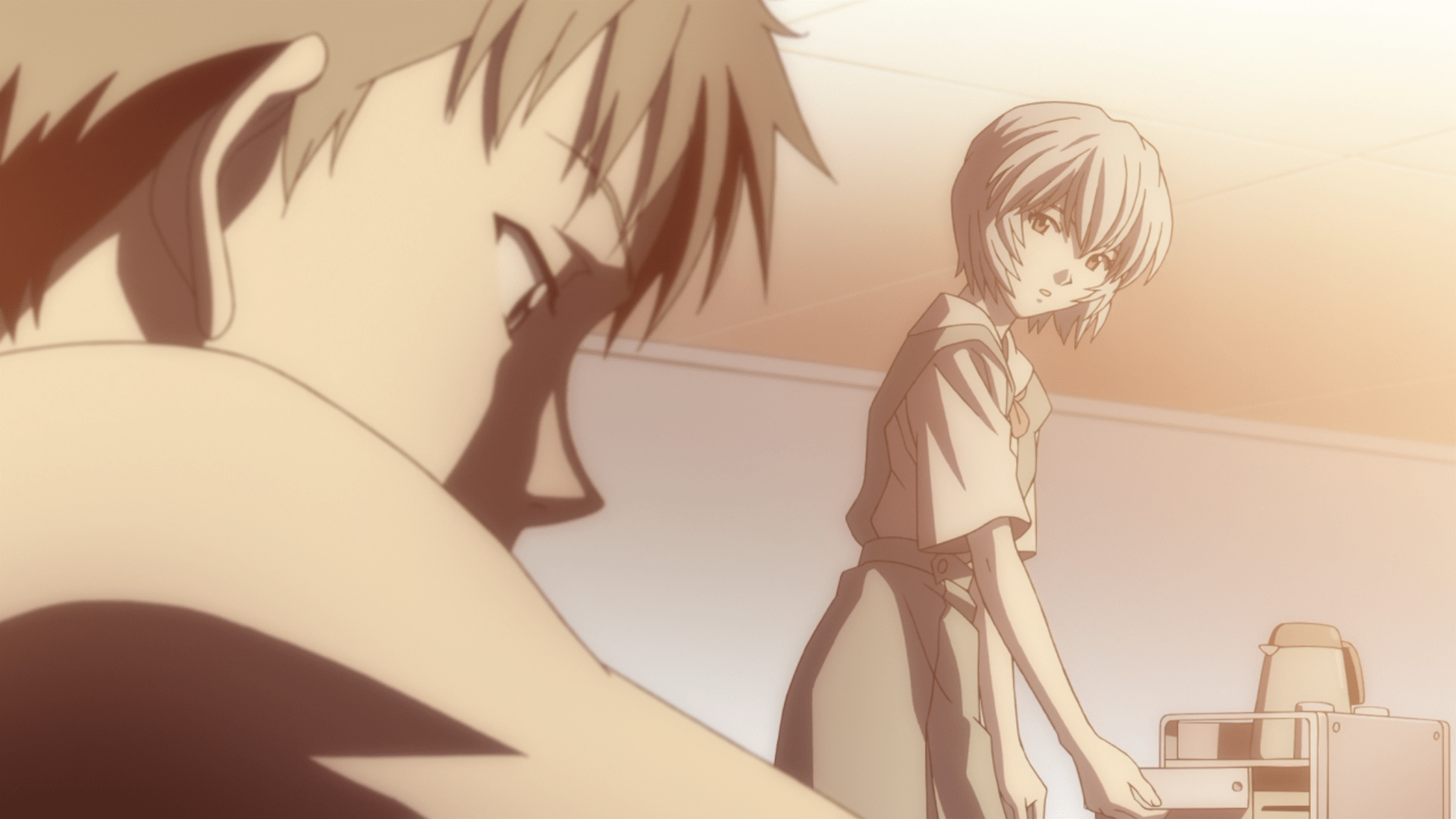
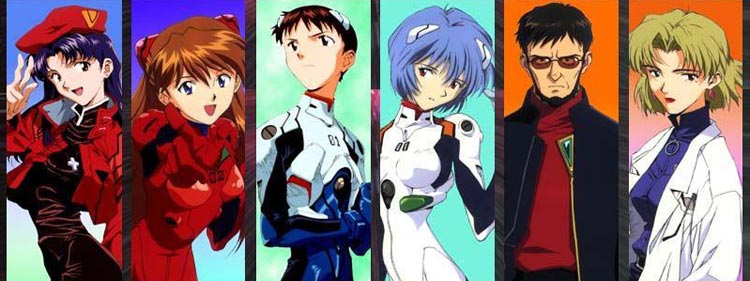
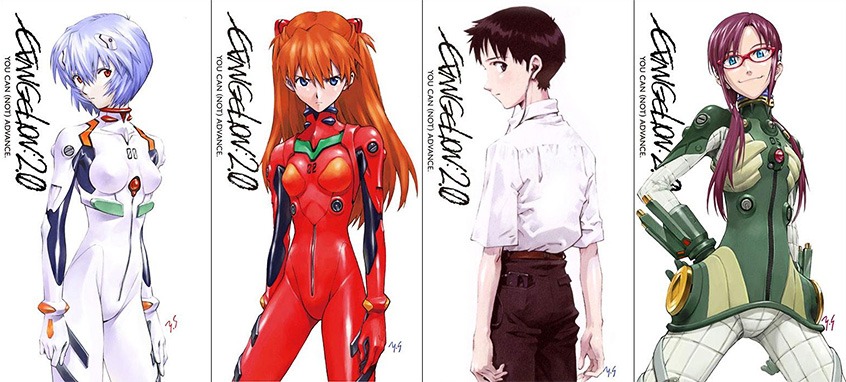

I really enjoyed this article. I think it is very important to teach people the difference between enjoying someone’s beauty respectfully and objectifying them. Even as a 14-year-old girl, I have been objectified in a sexual way and I wish everyone could understand the difference between these two things. I like that you added that men, as well as women, also can be objectified by people. I actually know some guys who have been through similar experiences like me. Secretly being attracted to a girl’s breasts when you know they don’t like you back is fine, as long as you still realize that they are a human being and give them the respect every living thing deserves. It is not okay when you secretly like that girl but they don’t like you back and you try to look up her skirt. It is her body, she did not give you any consent to let you see her undergarmets. That’s when you don’t take the person’s feelings into consideration. You do not give the person the needed respect when you try to see them naked. That’s when you treat them like an inanimate object. That’s when you use them as a tool, to make you horny. If you try to get into a fellow student’s good graces just so you can copy off of their homework that is also objectification. You don’t treat them with respect and use them as a means to an end like you would a jar-opener. That intrudes upon their rights that all people have. It makes you feel good, or it makes your life easier, but it is at the expense of whoever you are using. On the receiving end, it feels terrible that you are treated like an object for people to use, that they don’t care about your own personal feelings like they don’t matter. Give people the respect you also wish to be treated with because we are all living, just like you. So yeah, I like it when I see people that know the difference between those two things. You article was very well-constructed and enjoyable. Although, maybe give some examples of when you actually are objectifying someone. There are surely people out there that would maybe not understand where the lines are if you didn’t give examples for both things.(I know you gave an example for what it’s like not to objectify someone, just talking about what it’s like when you are.)
Well said!
Thanks for the suggestion. I need to use examples more often. When I read, I tend to skip over examples in favor of the big ideas, but I need to not do that when I write. Thanks for your great example and sharing your own experiences with objectification.
A very intriguing reflection indeed. I found these reflections and insights very interesting and helpful, in the sense that the matter at question, objectification, is approached in a very a analytical and investigative matter.
The examples of positive objectification, in the part “What makes objectification wrong is the absence of humanity”, were especially clarifying, but I felt that there could also be a clarifying example of negative objectification, specifically after “(..)The problem is when objectification is one sided and demeaning. It is a problem when objectification becomes a default view”. I felt the need of having an example, to help concretize this abstract situation in my head. I can think of a few examples myself, but not all readers might do so.
Thank you for sharing this small-yet-well-crafted piece of tought.
Thank you for the suggestion. I will keep examples in mind in the future. I tend to trust the reader to connect the dots, perhaps too much?
Hi
I wanted to comment to say i really liked this article. I read the title with some fear, but was more than glad to have read it all.
I was feeling quite down about this and some relating subjects. Having mixed feelings and not being sure why I qas left feeling weird and bothered while addressing things regarding anime.
I accidentally found your articles and the few 4 or some that i have read i have all really liked. You have organized thoughts on the matters at hand in easy to digest yet fulfilling information-wise.
I’m glad you found my articles helpful. I post a new article every Sunday. Thanks for reading!
People sure do love to use a lot of buzzwords and text to over complicate simple things to justify a victim narrative. This is just silly.
I attempted to point out the thoughts behind objectification and the trouble of having them. Can you explain why you viewed this as a silly way to justify a victim narrative?
The concept of objectification is nonsense, the article more or less admited it, even if not intentionally.
Also this feminsit concept is a stick used to beat men, and demonize male sexuality.
The word is vague and nebulous so therefore i reject the framing of it, and deny the word should exist.
Men are also objectified. Objectification happens whenever people are viewed as instruments or goods instead of as people.